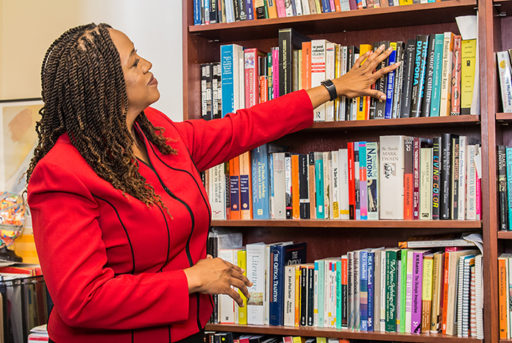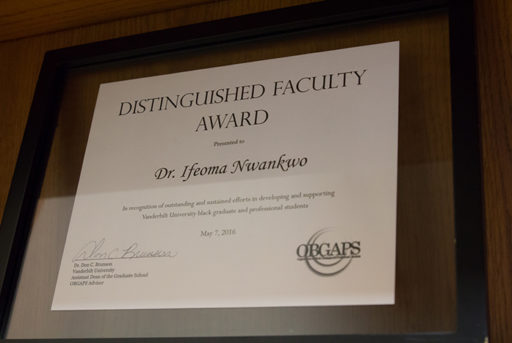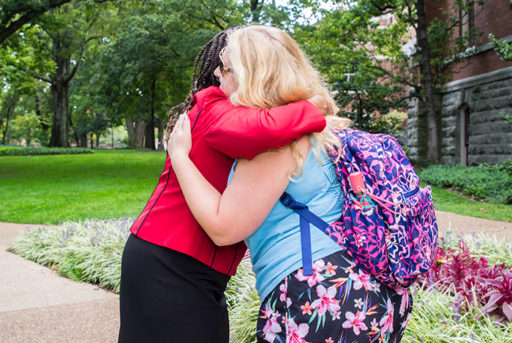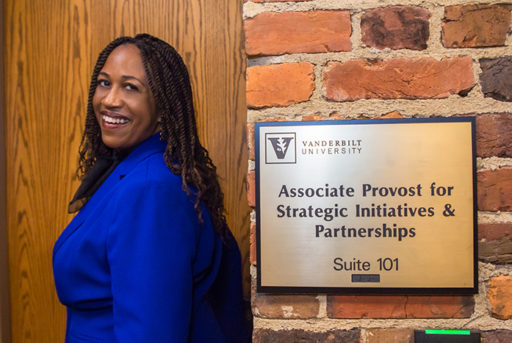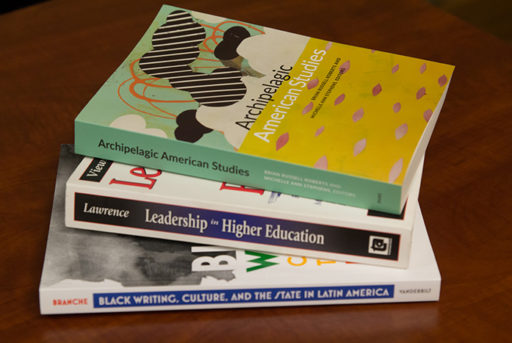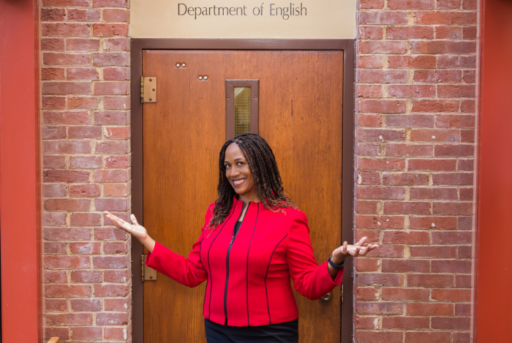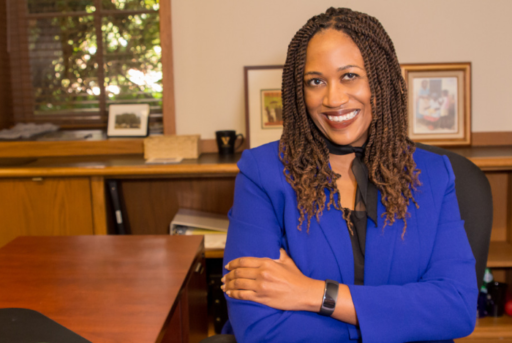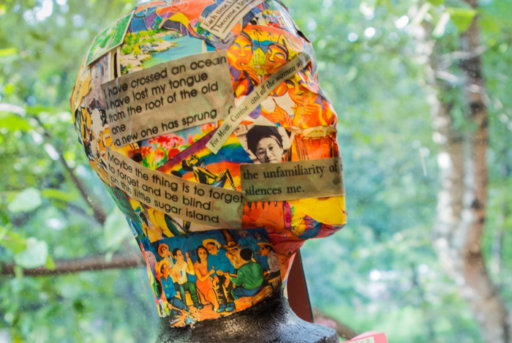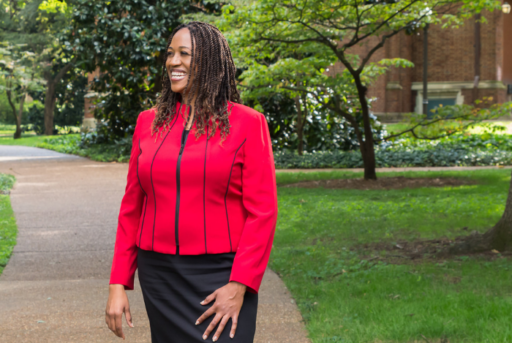Her experience
Dr. Nwankwo joined the faculty at Vanderbilt in 2006 as an associate professor of English and American Studies and served in a three-year term as the associate provost for strategic initiatives and partnerships as one of the first Chancellor’s Higher Education Fellows.
As a community leader and innovator, she strived to foster cross-disciplinary collaborations on projects, such as the Trans-Institutional Program, an initiative that supports emerging and existing interdisciplinary research centers and institutes, and the Library Collections Initiative, which funded disciplinarily diverse faculty projects in support of research and scholarship.
As a bridge-building administrator, Nwankwo and her team collaborated with the Vanderbilt Program for Interprofessional Learning, a longitudinal clinic experience in which professional students from graduate programs in medicine, advanced practice nursing, pharmacy and social work are gathered in teams of four—one from each discipline—in order to develop a deeper understanding of and respect for their health care colleagues with different training and skill sets.
Additionally, she deeply desired that the art located in campus buildings reflected the thriving, inclusive community at Vanderbilt. This lead to her leadership in the Arts & Humanities Rapid Response Grant Program, the Multicultural University Courses Selection Committee, and the Faculty Standing Committee for Campus Planning Consultation on Building Art.
Her research
In addition to her phenomenal work at Vanderbilt, Her in-depth research centers on nineteenth and twentieth century U.S. African American and Caribbean literature and culture, including that from the portions of Central America that border the Caribbean Sea. In particular, her work has focused on the encounters and experiences between these peoples in the areas of culture, identity, and ideology. The goal of this work is to understand the recurring paradigms for intercultural interaction and barriers to progressive cross-group engagements.
She is the author of the book, Black Cosmopolitanism: Racial Consciousness, and Transnational Identity in the Nineteenth-Century Americas (University of Pennsylvania Press 2005). The work is a comparative study of people of African descent in Cuba, the U.S., and the British West Indies in the wake of the Haitian Revolution. In it, she reveals that fear fostered by the revolution determined and has continued to determine the ways African-descended peoples in the Western Hemisphere relate to each other, as well as to other American and African-descended populations.
Her writings have provided new, critical insight into U.S. African American-Latino/Latin American-Caribbean relations through various articles on a number of topics, including the portrayal of Latin America in the novels of U.S. African American writers Gayl Jones and Martin Delany, on the mechanics of memory in Panamanian West Indian writing, on the politics of intra-racial translation in Langston Hughes’ translations of Nicolas Guillen’s poetry, and on Zora Neale Hurston’s ethnographic engagement with the Caribbean. She has edited three volumes: African Routes, Caribbean Roots, Latino Lives (a special issue of the journal Latin American and Caribbean Ethnic Studies), Rhythms of the Afro-Atlantic World (a collection of essays co-edited with Mamadou Diouf), and Critical Approaches to Louise Bennett (a special issue of the Journal of West Indian Literature).
Her more recent undertakings both build on and depart from this earlier work by using ethnographic methodologies alongside literary critical and cultural studies approaches to explore Inter-American engagements in the realms of cultural memory, identity, experience, and language as they appear in poetry, music lyrics, and oral histories. To that end, Dr. Nwankwo launched Voices from Our America in 2006.
The international project links academic research, K-12 curriculum development, and community engagement. It uses ethnographic and archival research to uncover new aspects of communities’ histories, then develops and runs workshops for teachers, youth, and community members. It also creates digital archives, innovative educational materials, programs that based on the new information uncovered.
As the founding director of this program, she brings this work into her classroom, enacting her belief that it is absolutely crucial that U.S. youth grasp the historical and contemporary realities of the many cultured worlds within and beyond the United States and understand how their existence and perspectives have been shaped by them. This mission drives her pedagogy, alongside her commitment to hands-on, eyes-on, and ears-on learning inside and outside of the classroom.
Her second book project is The Wisdom Project, which recognizes older adults’ impactful, long-lasting knowledge and wisdom and incorporates them into K-12, undergraduate, graduate and health professions education. The three-pronged initiative includes The Wisdom of the Elders, the Wisdom Working Group and the Wisdom Digitized Wisdom Multiplied app.
This project includes interviews collected from African American elders who grew up in the Jim Crow South, Panamanians of West Indian descent whose black British ancestors performed death-defying labor to build the Panama Canal, and African American women expatriates, tourists and travelers. Nwankwo said. The purpose of this research is to examine approaches to operationalizing intergenerational and intercultural relationships in the service of sociopolitical change.
The Wisdom of the Elders initiative launched in 2012 at the Patterson Park Community Center in Murfreesboro, Tennessee. Three years later, the city of Murfreesboro began funding the continuation of the project, which was renamed African American Voices of Past and Present by the elders and instructors. They also subsequently founded a spirited community organization, the African American Heritage Society of Rutherford County.
The Andrew W. Mellon Foundation awarded a three-year grant to The Wisdom of the Elders in 2015, enabling the initiative to scale and thrive in other cities, such as New Orleans and plans of launching in the Middle Tennessee counties of Wilson and Maury.
She has collected more than 250 interviews for these projects, combined.
She is currently on sabbatical, reflecting on her cultivating learning experiences in university administration and completing her work on two other book projects that highlight the identity- and memory-making methodologies employed by Caribbean diaspora communities in Latin America, and the relevance of race for the theory and practice of the digital humanities.
Additionally, Nwankwo will focus on a new curriculum that she and Dr. James S. Powers, a professor of geriatrics, have created and tested that is geared toward medical professionals working with older adults from marginalized communities.
Her accolades and education
She has been awarded fellowships from the distinguished Ford Foundation, the DeWitt-Wallace Foundation, and the Woodrow Wilson National Fellowship Foundation for her outstanding work. She earned her Ph.D. from Duke University in 1999, with certificates in Latin American Studies and African American and Diaspora Studies.

